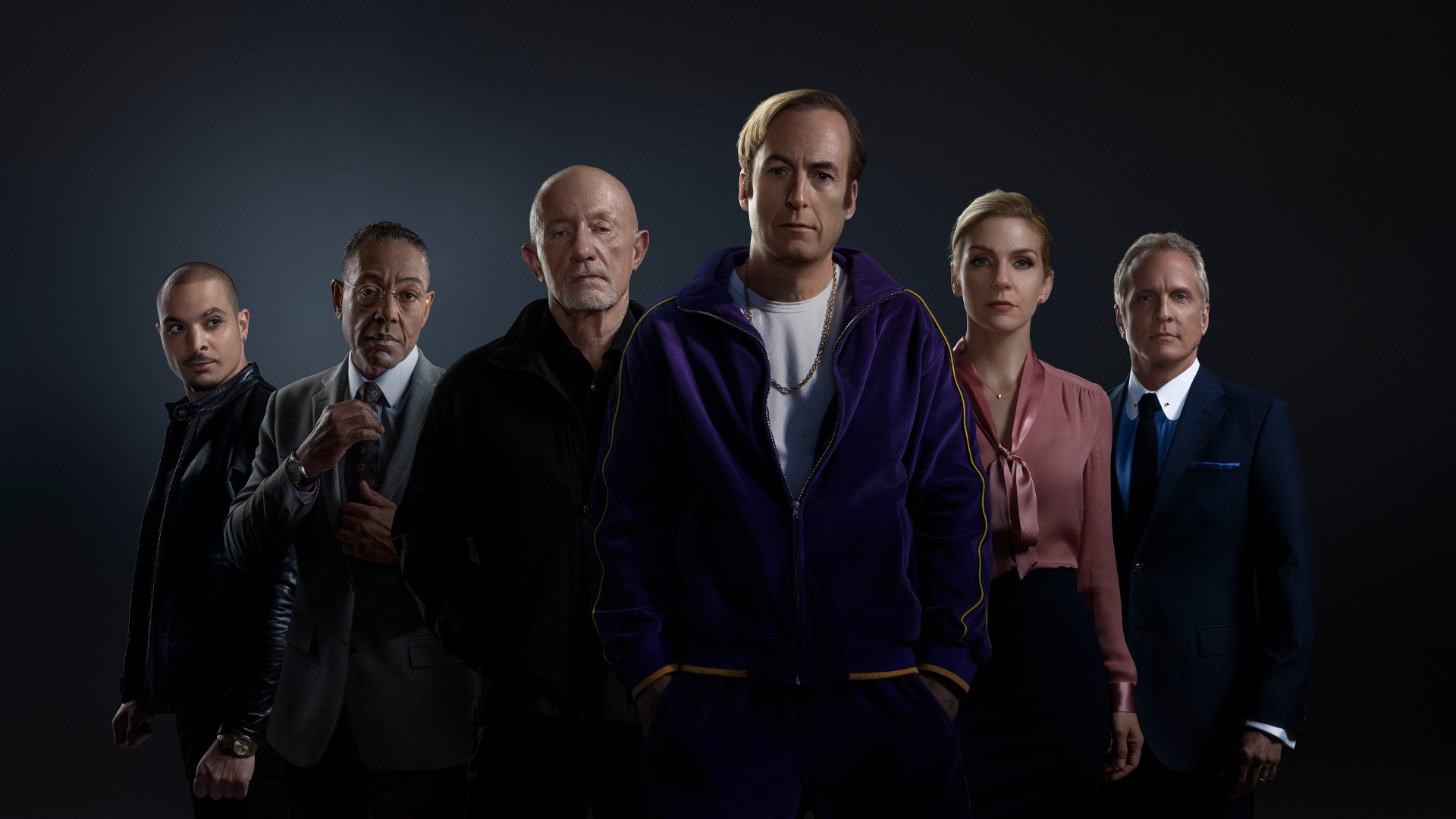How Better Call Saul just delivered a masterpiece episode on par with Breaking Bad's finest
A mighty work that almost tops Ozymandias

There’s no longer a definitive answer to whether Better Call Saul or Breaking Bad is the better series. Arguing either way will leave your face the bluish hue of a Heisenberg cook, especially now that Better Call Saul has an astounding stand-out episode that perfectly encapsulates all that’s great about the show.
For a long time, the prequel series lacked an “Ozymandias” – the Rian Johnson-directed, action-packed 60th episode of Breaking Bad that sees Hank die during an explosive shootout. “Ozymandias” has been rightly heralded as a near-perfect mini-movie. And now, after five seasons, Better Call Saul has delivered an episode to rival Breaking Bad’s best. What’s more, Saul accomplished this remarkable feat without having to imitate its former series.
“Bagman” forges its own distinctive path to deliver 55 minutes of gun-slinging, piss-chugging action with the same confidence of a Slippin’ Jimmy scheme. Part-Lawrence of Arabia, part Coen Brothers movie, the episode uses the same baked-in motifs we’ve seen time and time again from Vince Gilligan’s universe – sweeping vistas, slow drawn-out music-backed sequences, a working man in over his head – and dials things up slightly. Jimmy starts off confidently believing a new job to deliver money will be hassle free. The next thing we know, the shady lawyer’s stranded in a desert with Mike Ehrmantraut, the pair struggling to survive.
What’s so crucial about this setup is that it renders Saul’s biggest asset – his gift of the gab – completely useless. Where Walter White had machine guns, Saul only has “Yo soy abogado” (“I am a lawyer”). Having Jimmy unable to use his weapon of choice is a huge creative risk for the writers to take. However, the Breaking Bad team have often spoken about how they enjoyed painting Walt out of a corner. They use that same logic here, leading to an episode that excels by tying one hand behind its own back.
The lack of dialogue causes a naturally tense atmosphere. Better Call Saul has never been a pressure-cooker show like Breaking Bad, but by keeping Saul quiet and in such an uncharacteristic bind, every emotion plays out on his face, to the point where – come the end – our own emotional experience watching the show is mirrored by Saul’s worn-out, sunburnt expression. Plus, it makes the brief moments where conversations do take place all the more potent.
“I know what it’s for,” Mike tells a stricken Saul towards the end. He may be addressing the World’s Second Best Lawyer, but he could just as easily be talking to the Breaking Bad-savvy audience who know what’s coming next. Mike later reveals that there are people he cares about and that’s what drives everything he does, adding that they “never will” know what he does for Gus Fring. The monologue not only enriches Mike in the context of Better Call Saul, but also in its sequel. It takes real skill to make one exceptional episode; to have it reverberate, ripple, and improve a rewatch of Mike’s final appearance in Breaking Bad is to be applauded.
Sign up for the Total Film Newsletter
Bringing all the latest movie news, features, and reviews to your inbox

Better Call Saul has finally embraced its destiny as a Breaking Bad prequel
What’s even more impressive is that “Bagman” really should not have worked. We know that Mike and Saul survive their ordeal in the New Mexico desert. Despite the thick plot armour on the episode’s two leads, Vince Gilligan – who directs the episode – ups the stakes in a different way: by involving Kim.
The moment Kim steps into the interrogation room to confront Lalo, the penny drops. There’s a reason Kim doesn’t appear in Breaking Bad, and that path towards her endgame begins here. This scene showcases perhaps the biggest secret to Better Call Saul’s success – that the series has never been about the rise and fall of Saul, but everyone else he hurts. His brother, Chuck, is gone and soon, too, Kim will depart. (Where “Ozymandias” brought about Hank’s demise, “Bagman” starts Kim on that same path.)
A sense of dread – which also permeates the Mike and Saul scenes – runs deep here and I don’t think it can ever be shaken off. “Bagman” hasn’t just made everyone sit up with its odyssey-like journey through the desert; it has irreversibly and organically changed how we see these characters. As Mike points out, Kim’s “in the game now”.
Another of the episode’s strengths is the restraint the writers show when it comes to action. Rather than try and go toe-to-toe with Breaking Bad, the episode is altogether quieter, more meditative (minus an early gunfight between Mike and the cartel). From Jimmy’s warped rendition of “99 Bottles of Beer” to his Suzuki Esteem being pushed into oblivion, “Bagman” makes for a comedy laced with a knowing sense of tragedy; it’s still Better Call Saul and never once loses sight of that.
So, next time you argue over whether Breaking Bad or Better Call Saul is the better show, stop for a second. Both are all-timers – and both feature standout episodes that perfectly encapsulate their respective shows’ finest hours.
- Everything new on Netflix this month
- The best Netflix movies
- The best Netflix shows
I'm the Senior Entertainment Writer here at GamesRadar+, focusing on news, features, and interviews with some of the biggest names in film and TV. On-site, you'll find me marveling at Marvel and providing analysis and room temperature takes on the newest films, Star Wars and, of course, anime. Outside of GR, I love getting lost in a good 100-hour JRPG, Warzone, and kicking back on the (virtual) field with Football Manager. My work has also been featured in OPM, FourFourTwo, and Game Revolution.



